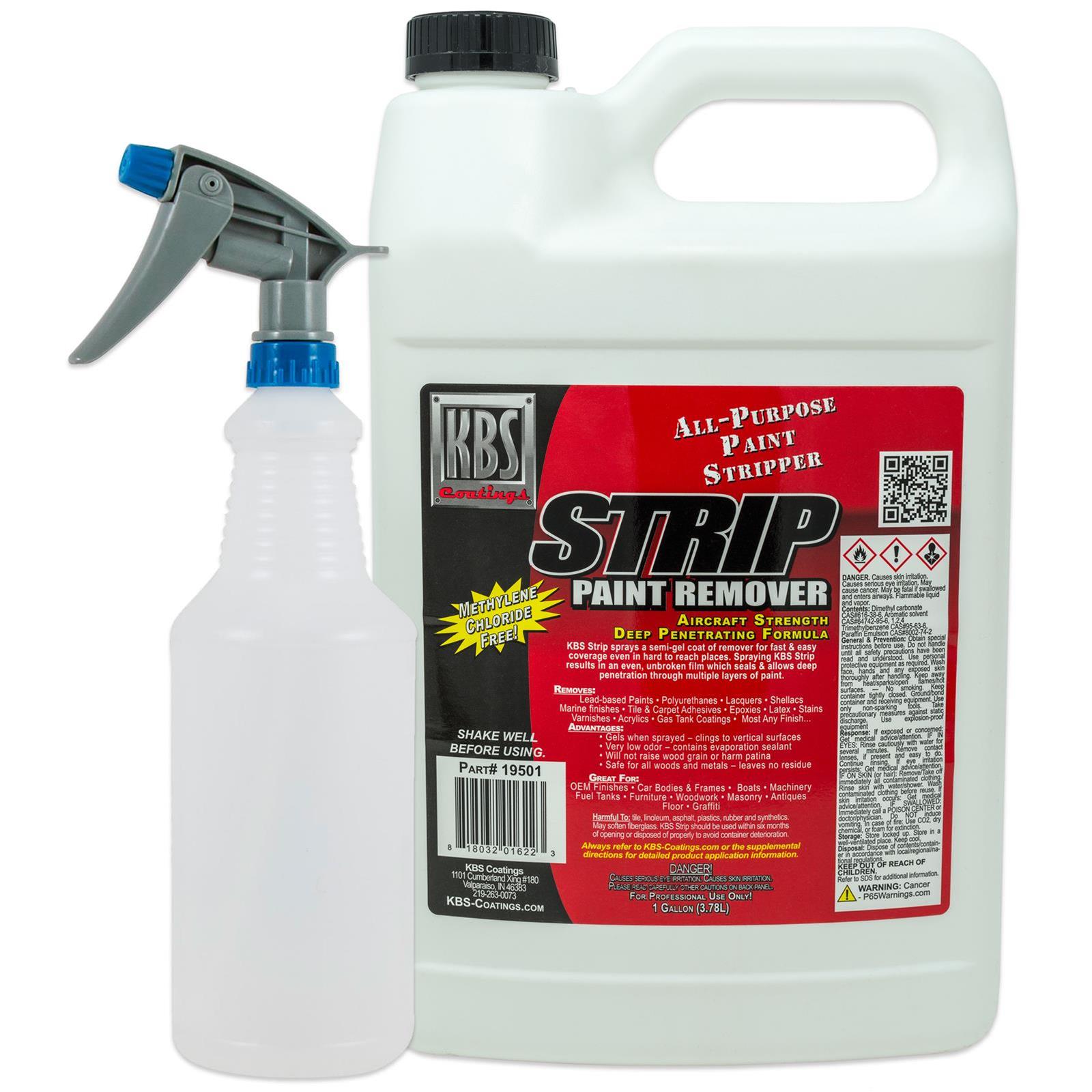Gasoline can remove paint. Gasoline is a solvent and can dissolve many types of paint.
However, it’s important to note that gasoline is not a recommended method for removing paint as it can be dangerous and potentially cause harm to the surface being cleaned. Gasoline is highly flammable and can lead to fires or explosions if not handled properly.
Additionally, gasoline can also damage certain surfaces, such as plastic or rubber. It’s always best to use a paint remover specifically designed for the type of paint and surface being cleaned.
Contents
- Gasoline And Paint Interaction
- Debunking Common Myths
- Safe Paint Removal Techniques
- Dangers Of Using Gasoline
- Gasoline’s Effectiveness In Paint Removal
- Proper Disposal Of Gasoline-soaked Materials
- Alternatives To Gasoline For Paint Removal
- Expert Opinions On Paint Removal
- Frequently Asked Questions
- Conclusion
Gasoline And Paint Interaction
When gasoline comes into contact with paint, it can have a notable impact on the painted surface. Let’s explore how gasoline interacts with paint and its potential effects.
Chemical Composition Of Gasoline
Gasoline is primarily composed of hydrocarbons, such as octane, heptane, and ethanol, which are solvents known for their ability to dissolve substances.
Paint Composition And Vulnerability
Paint typically consists of pigments, binders, solvents, and additives. Solvents in paint are crucial for maintaining the paint’s texture and viscosity.
Debunking Common Myths
When it comes to removing paint from surfaces, there are many myths and misconceptions floating around. One of the most popular myths is that gasoline can effectively remove paint. In this section, we will debunk this myth and provide you with accurate information about the use of gasoline as a cleaning agent and its long-term effects on paint surfaces.
Gasoline As A Cleaning Agent
Contrary to popular belief, gasoline is not a suitable cleaning agent for removing paint from surfaces. While gasoline may have some solvent properties, it is not designed specifically for paint removal and can cause more harm than good. Gasoline is highly flammable and poses a safety risk when used as a cleaning agent.
Additionally, gasoline is not effective in breaking down the chemical composition of paint. It may only smear the paint, making it more difficult to remove or even spread the paint to other areas. This can result in a messy and ineffective paint removal process.
Long-term Effects On Paint Surfaces
Using gasoline to remove paint can have detrimental long-term effects on paint surfaces. Gasoline is a harsh chemical that can strip away the protective layers of paint, leaving the surface vulnerable to damage. It can cause fading, discoloration, and even degradation of the paint. Over time, repeated use of gasoline as a cleaning agent can lead to the deterioration of the paint surface.
Furthermore, gasoline can also damage other materials commonly found in the vicinity of paint surfaces, such as plastic, rubber, and certain types of fabrics. These materials may react negatively to gasoline, resulting in discoloration, warping, or even disintegration.
It is important to use appropriate paint removal methods and products that are specifically formulated for the task at hand. This ensures that the paint is effectively removed without causing any harm to the underlying surface or risking your safety.
In conclusion, gasoline is not a suitable option for removing paint from surfaces. It is ineffective in breaking down paint and can cause long-term damage to both the paint surface and surrounding materials. It is always best to use proper paint removal techniques and products to ensure a safe and successful outcome.
Safe Paint Removal Techniques
Gasoline is not a safe or recommended method for removing paint. It can damage surfaces and pose serious health and safety risks. It’s best to use safer paint removal techniques such as sanding, heat guns, or chemical strippers.
Recommended Chemical Solvents
Gasoline is a powerful solvent that can remove paint effectively. However, it is not a safe method. Safer alternatives for paint removal include acetone, denatured alcohol, and paint strippers. These solvents are less flammable and less harmful to the environment.Mechanical Methods For Paint Removal
When it comes to removing paint without using chemical solvents, mechanical methods are a safer option. Techniques such as sanding, scraping, and pressure washing can effectively remove paint without the risk of exposure to harmful chemicals. It is important to wear protective gear when using these methods to prevent injuries.
Credit: www.reddit.com
Dangers Of Using Gasoline
While gasoline is commonly used as a fuel for vehicles and machinery, it can be extremely hazardous when used as a paint remover. The use of gasoline to remove paint poses significant health risks and has a detrimental impact on the environment.
Health Risks
Exposure to gasoline can lead to various health issues, including dizziness, headaches, nausea, and even long-term respiratory problems. Direct contact with the skin can result in irritation and dermatitis. Prolonged exposure to the fumes of gasoline can also cause damage to the central nervous system and internal organs.
Environmental Impact
When gasoline is used as a paint remover, it releases harmful volatile organic compounds (VOCs) into the atmosphere. These VOCs contribute to air pollution and can have a detrimental effect on air quality. Additionally, improper disposal of gasoline-contaminated materials can lead to soil and water contamination, posing a threat to ecosystems and wildlife.
Gasoline’s Effectiveness In Paint Removal
Gasoline is often considered as a potential solution for removing paint due to its solvent properties. However, its effectiveness in this regard has been a topic of debate and concern. This article aims to explore the practicality and safety of using gasoline for paint removal.
Comparative Analysis With Other Solvents
When compared to traditional paint removal solvents such as acetone and mineral spirits, gasoline exhibits similar effectiveness. It can effectively break down and dissolve many types of paint, making it a viable alternative for those seeking a cost-effective solution.
Case Studies And Real-life Examples
Real-life examples have shown that gasoline can be used successfully to remove paint from metal surfaces, especially in situations where other solvents may not be readily available. However, caution must be exercised due to the flammability and toxicity of gasoline.

Credit: www.summitracing.com
Proper Disposal Of Gasoline-soaked Materials
Gasoline does remove paint and poses fire hazards. Proper disposal of gasoline-soaked materials is crucial for safety and environmental protection. Always follow local regulations and guidelines for safe handling and disposal of such materials.
Proper Disposal of Gasoline-Soaked Materials Gasoline is a potent solvent that can easily remove paint, making it a hazard for the environment and human health. When disposing of gasoline-soaked materials, it is crucial to adhere to environmental regulations and best practices. Improper disposal can lead to soil and water contamination, posing serious risks to ecosystems and public safety.Environmental Regulations
It is essential to comply with local and federal environmental regulations when disposing of gasoline-soaked materials. Failure to do so can result in fines and legal consequences. Contact your local environmental agency to understand the specific guidelines and regulations for the proper disposal of hazardous materials.Best Practices For Disposal
When disposing of gasoline-soaked materials, follow these best practices to ensure safety and environmental responsibility: – Use a designated hazardous waste disposal facility: Many communities have facilities equipped to handle hazardous materials like gasoline-soaked rags or materials. Utilize these resources to prevent environmental harm. – Avoid pouring gasoline down drains or sewers: This can lead to water contamination and is strictly prohibited. Seek alternative disposal methods to safeguard the environment. – Consider professional assistance: If you are unsure about proper disposal methods or dealing with a large quantity of gasoline-soaked materials, seek professional assistance from waste management companies to ensure safe and compliant disposal. By adhering to environmental regulations and best practices for disposal, you can mitigate the environmental and health risks associated with gasoline-soaked materials. Responsible disposal is crucial for preserving our environment and safeguarding public health.Alternatives To Gasoline For Paint Removal
When it comes to removing paint, many people turn to gasoline as a quick and effective solution. However, the use of gasoline for paint removal can be hazardous and harmful to the environment. Fortunately, there are safer and more eco-friendly alternatives that can achieve the same results without the risks associated with gasoline.
Eco-friendly Options
Eco-friendly paint removal options are gaining popularity due to their minimal impact on the environment and user safety. These alternatives are effective in removing paint without the use of harsh chemicals. Some of the eco-friendly options include:
- Citrus-based solvents: These solvents are derived from natural citrus fruits and are effective in breaking down paint without emitting harmful fumes.
- Soy-based paint removers: Made from soybeans, these products are biodegradable and offer a safer alternative to traditional paint stripping methods.
- Biodegradable gels: These gels are designed to cling to vertical surfaces, making them ideal for removing paint from walls and other surfaces.
Commercial Paint Strippers
Commercial paint strippers offer a wide range of options for those seeking professional-grade solutions for paint removal. While some commercial products may contain chemicals, there are water-based and low-VOC (volatile organic compound) options available that are safer for both users and the environment. Some popular commercial paint strippers include:
- Acetone-based strippers: These are effective for removing tough paint and varnish, but should be used with caution due to their flammability.
- Methylene chloride-free strippers: These products provide powerful paint removal without the health risks associated with methylene chloride.
- Water-based strippers: Ideal for indoor use, these products are less toxic and emit fewer fumes compared to solvent-based options.

Credit: www.youtube.com
Expert Opinions On Paint Removal
Experts generally advise against using gasoline to remove paint due to safety concerns and potential damage to surfaces. Professional paint removal methods like sanding or chemical strippers are safer and more effective alternatives. It’s crucial to prioritize safety and efficiency when considering paint removal techniques.
Professional Advice
Expert opinions on paint removal can provide valuable insights for those dealing with the aftermath of accidental spills or stains. When it comes to removing paint with gasoline, it’s crucial to seek guidance from professionals in the field.Tips From Auto Body Specialists
Auto body specialists emphasize the importance of using caution when considering gasoline for paint removal. They suggest exploring safer alternatives to prevent damage to the underlying surface.Frequently Asked Questions
Will Gasoline Destroy Paint?
Gasoline can damage paint due to its chemical composition. It can cause discoloration and deterioration. Prevent spills and clean promptly.
Does Fuel Strip Paint?
Yes, fuel can strip paint. Gasoline, diesel fuel, and other petroleum-based fuels can dissolve and remove paint from surfaces they come into contact with. It’s important to handle fuel carefully and avoid spills or splatters to prevent damage to painted surfaces.
What Paint Will Hold Up To Gasoline?
Epoxy paint is the best option for surfaces that will come in contact with gasoline. It creates a strong bond and is resistant to chemicals and abrasions. Make sure to clean the surface thoroughly before application to ensure proper adhesion.
How To Clean Gasoline Off Car Paint?
To clean gasoline off car paint, wipe the area with a microfiber cloth soaked in soapy water. Rinse and dry. Apply a specialized car cleaner if needed. Avoid using harsh chemicals. Consider professional help for stubborn stains. Regular waxing can prevent damage.
Conclusion
It’s important to handle gasoline with care around painted surfaces. While gasoline can remove paint, it’s best to use dedicated paint removers for the task. Always follow safety guidelines and consider seeking professional assistance for paint removal projects. Remember to prioritize safety and environmental protection when dealing with gasoline.
